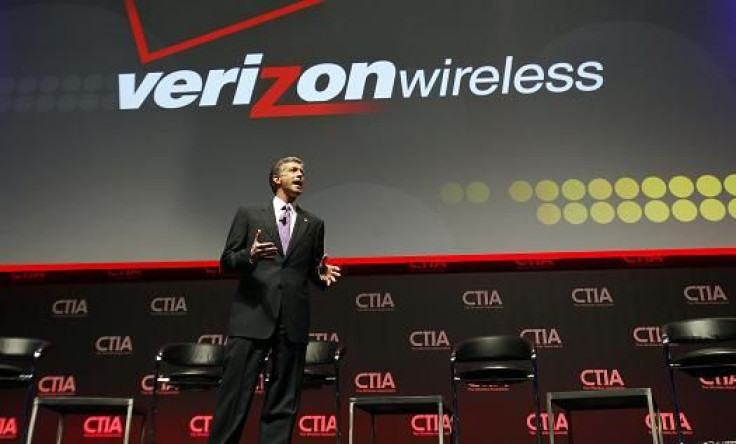Verizon Wireless: Could Vodafone Payout Lead To Control Shift?

One of the most successful partnerships ever created in the wireless sector has been Verizon Wireless, which is 55 percent owned by Verizon Communications Inc. (NYSE: VZ) and 45 percent by Vodafone PLC (Nasdaq: VOD) of the UK.
With nearly 100 million U.S. subscribers, Verizon Wireless, based in Basking Ridge, N.J., is only a hair behind AT&T Inc. (NYSE: T) the No. 1 U.S. carrier, and its 4G long-term evolution (LTE) network may be more modern and built-out than AT&T's.
But events in the past 24 hours raise the question of whether Verizon Communications, based in New York, may be on the verge of buying out its UK partner.
Vodafone, to be sure, could use the money. On Tuesday, the British carrier reported a disastrous first half: Its net loss was 1.98 billion pounds (US $3.14 billion), compared with prior-year net income of 6.68 billion pounds. It's the first Vodafone loss in four years.
Revenue, moreover, fell slightly, too, missing analyst estimates. The company also said the European financial crisis had hammered performance and announced a 5.9 billion pound writeoff for operations in troubled Italy and Spain.
On Tuesday, Vodafone's American Depositary Receipts fell as much as 3 percent, before stabilizing in the afternoon at $25.72, down 63 cents. That still values the whole company at about $127 billion.
On Monday, though, Verizon Wireless announced it will pay a $8.5 billion special dividend to its shareholders – Verizon Communications and Vodafone – not individual shareholders. That means slightly more than $3.8 billion is headed to Vodafone.
The remainder goes to Verizon Communications to help pay its dividends and pay for other activity. The carrier was just hit by Superstorm Sandy as well.
The special dividend announcement didn't come with any comments, except to say the partners will get their cash by Dec. 31. In January, the partners split an earlier $10 billion special dividend.
A Verizon Communications representative said his company would continue to be a “good steward of cash.”
Meanwhile, Verizon Wireless, formed in 2000, is profitable, adding to Vodafone's cash, at a time when the British partner's businesses outside Europe, such as in Africa, aren't doing well.
Getting a huge payout from Verizon Communications might be just what the doctor ordered if CEO Vittorio Colao wanted to sell out. But Verizon Communications itself reported cash and investments of only $9.7 billion as of Sept. 30, so it might need to raise capital in a mega-deal soon. But with low interest rates and good prospects for Verizon Wireless in the current boom for smartphones and tablets, financing likely could be easily arranged.
Still, few analysts speculated about a divorce because Verizon Wireless is doing so well. John Hodulik of UBS said the second dividend “illustrates the strength” of the Verizon Wireless franchise, which generates about $2 billion each month in cash flow.
Hodulik maintained a “buy” rating on Verizon shares, with a $48 price target. They were at $43, up 44 cents, in midday Tuesday trading.
© Copyright IBTimes 2024. All rights reserved.












